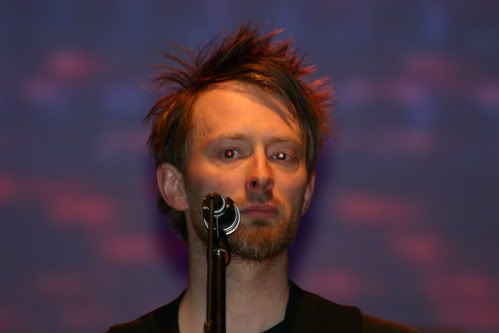About the influence John Lennon's Plastic Ono Band had on The Bends.
... Thom later claimed Lennon's cut-to-the-bone lyrical approach was "something I could rail against while we were doing our record (The Bends): 'Well, I really love that, but I don't want to do it like that .'" Yorke was mastering the art of meaningful concealment. "I know what's true and what's not," he said, "and nobody else does.... I took a step back from what I was writing in words. I just sort of treated that as another instrument rather than this is me personally giving you all, everything in my would. You do that once, and you never ever want to do that again."
--
Exit Music: The Radiohead Story by Mac Randall
